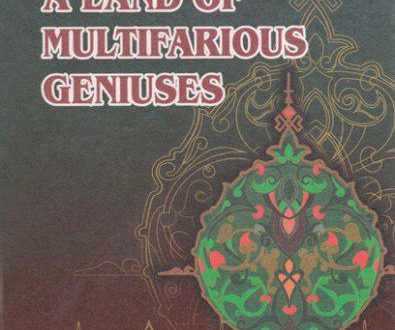Having studied law on Iraqi direction from Muhammad ibn Hasan Shaybani,the classical follower and disciple of Abu Hanifa, the lawyer Abu Hafs Kabir (768-832) returned to his native country, made the ancient Bukhara a centre of legal studies and prepared a number of students in law.
Having studied law under the auspices of Abu Sulayman Juz-jani, who was a potential follower of Muhammad ibn Hasan, a famous lawyer and an expert in the science of Hadiths, Abu Bakr Juzjani and his follower Abu Mansur Maturidi as well as some other colleagues in law and kalam made Samarkand of the 10th century the second centre of development of the Hanafian order in Maveraunnahr. From these two centres law and the teachings of the Hanafian order spread throughout the area of Central Asia where hundreds of capable specialists in the main fields of Shariah law were educated.
If Farabi, Beruni and Ibn Sina (Avicenna) developed the theoretical and practical sciences, spread the m in the East and made it possible to use these sciences in practice in the western countries, Shamsu-l-aimma Sarakhsi commented on and introduced the principles of the international law to the specialists of the whole world by means of the famous book “As-Siyaru-l-kabir” written twelve centuries ago by Imam Muhammad ibn Hasan Shaybani.
Imam Abu Mansur Maturidi founded the second school of kalam for the “ahli sunnah” and strengthened the foundations of the Hanafian order. Imam Burhan ad-din al-Marghinani created the unique collection of his investigations “Hidaya” on the Hanafian law. One more person who contributed to the development of the Islamic sciences was a great lawyer Abu Zayd Dabusi.
The scientific status and works of Abu Zayd Dabusi
A great lawyer and scholar Abu Zayd Ubaydullah ibn Umar ibn Isa al-Qazi ad-Dabusi was one of the quzzati sab’a of Bukhara. He was a potential representative and chairman of the Hanafian order in Bukhara. He was born and grew up in the village of Dabusiya situated between Samarkand and Bukhara. Having lived a productive life there, he died in 430/1039 at the age of 63 and was buried in the graveyard near the mausoleum of Imam Abu Bakr Tarkhan. According to Prof. Najmiddinov, an investigator of the scientific legacy of Abu Zayd Dabusi, he was born in 367/978.
Abu Zayd Ubaydullah ibn Umar ibn Isa al-Qazi ad-Dabusi studied law from two great lawyers — Abu Bakr Muhammad ibn Fazl Bukhari and Abu Ja’far ibn Abdullah Ustrushani (Astrushani), a follower of Abu Bakr Jassas, and reached the highest level in law, style, comparison and other sciences and became a capable and potential scholar in Sufism. His scientific potential and unique ability was acknowledged by all of his contemporaries and later experts in the Islamic sciences.
As is stressed in the famous books as “Vafayatu-l-a’yan”, “Taju-t-tarajim”, “Al-Javahiru-l-muziya” and “Al-Favaidu-l-bahiya”, he always had heated discussions on the urgent problems of law with the estimated scholars of Bukhara and Samarkand.
Abu Zayd Ubaydullah ibn Umar ibn Isa al-Qazi ad-Dabusi was the author of precious books on the Hanafian order. With his original works written eight and a half centuries ago he laid foundations of the comparative law (ilmi khilaf) on the Islamic law. The list of works written by Abu Zayd Dabusi is as follows:
- “Ta’ sisu-n-nazar” (Substantiation of Views);
- “Taqvimu-l-adilla” (Estimation of Proofs);
- “Kitabu-l-asrar fi-l-usul va-l-furu’” (A Book of Basics of the science of Law and the Secrets of its Branches);
- “Al-Amadu-l-aqsa” (The Farthest Aim);
- “Khizanatu-l-huda” (The Treasure of Hidaya);
- “Sharh al Jamiu-l-kabir” (Comments on Jamiu-l-kabir);
- “Al-anvar fi usuli-l-fiqh” (The Rays Opening the Basics of Law);
- “An-Nuzum fi-l-fatava” (Rules in Fatavas (Permissions));
- “Tajnisu-d-Dabusi” (Dabusi’s Rules and Classifications);
- “At-Ta’liqa” (Margins).
The manuscripts of the above-mentioned four from ten books (1-4) are preserved in different libraries of the world and some of them, mainly the first and the second ones, have fully been published. However, the last six books are considered not to have reached us.
Dabusi had a rare ability and potential of drawing conclusions from the original sources of law. He was famous and at the same time different among the other lawyers of Central Asia with his original style of work and philosophical thinking. Dabusi made a notable contribution to the development and dissemination of the Hanafian law and other branches of the Islamic sciences. He seale his own name to the history of Islamic sciences with his scientifi works of great importance. His contribution may be seen in the field of styles of law, comparative law, branches of law as well as in Sufism.
As is well known, the science of style serves as a methodologic basis for making sentences in the Shariah law. As is stressed in th book “Law terminology” the subject called “An introduction to th settlement of legal matters” is used as a methodological subject i modern legal sciences. Though very difficult to learn, this subject studi the legal matters relying on real cases of settlement of problems
It will not be exaggeration if we say that Abu Zayd Dabusi made a great break in the science of law. Unlike most of his colleagues, he treated the comparative law as one of the necessary component parts of the science of style in law. In his book “Taqvimu-l-adilla”, he described the peculiarities of the comparative law and gave definitions of the law terms and consequent rules from them.
Ibn Khaldun characterizes the author in the following lines: “Among the Imams of the Hanafian order Abu Zayd Dabusi has written a wide-scaled works dealing with “qias” (comparison) of the Hanafian law and successfully settled all the controversial proble ms of this field. Thus he raised the science of the style in law to the highest level of perfection; all the controversial questions in this field have found their settlement and the rules of this law have been improved up to their perfection”.
According to Ibn Khaldun, among the Imams of his time Abu Zayd Dabusi wrote the best work on law and among the Imams of the later period Sayf-u-l-Islam Bazdavi was the best author in this field.
 Imom Buxoriy xalqaro ilmiy-tadqiqot markazi bukhari.uz
Imom Buxoriy xalqaro ilmiy-tadqiqot markazi bukhari.uz











